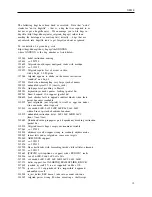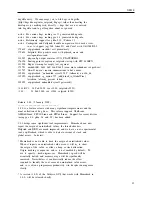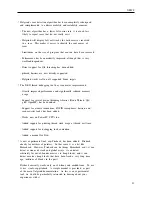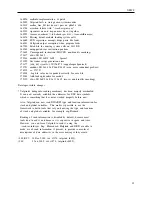
NEWS
- VEX/ is now integrated properly into the build system.
This means
that dependency tracking within VEX/ now works properly, "make
install" will work without requiring "make" before it, and
parallel builds (ie. ’make -j’) now work (previously a
.NOTPARALLEL directive was used to serialize builds, ie. ’make -j’
was effectively ignored).
- The --with-vex configure option has been removed.
It was of
little use and removing it simplified the build system.
- The location of some install files has changed.
This should not
affect most users.
Those who might be affected:
* For people who use Valgrind with MPI programs, the installed
libmpiwrap.so library has moved from
$(INSTALL)/<platform>/libmpiwrap.so to
$(INSTALL)/libmpiwrap-<platform>.so.
* For people who distribute standalone Valgrind tools, the
installed libraries such as $(INSTALL)/<platform>/libcoregrind.a
have moved to $(INSTALL)/libcoregrind-<platform>.a.
These changes simplify the build system.
- Previously, all the distributed suppression (*.supp) files were
installed.
Now, only default.supp is installed.
This should not
affect users as the other installed suppression files were not
read; the fact that they were installed was a mistake.
* KNOWN LIMITATIONS:
- Memcheck is unusable with the Intel compiler suite version 11.1,
when it generates code for SSE2-and-above capable targets.
This
is because of icc’s use of highly optimised inlined strlen
implementations.
It causes Memcheck to report huge numbers of
false errors even in simple programs.
Helgrind and DRD may also
have problems.
Versions 11.0 and earlier may be OK, but this has not been
properly tested.
The following bugs have been fixed or resolved.
Note that "n-i-bz"
stands for "not in bugzilla" -- that is, a bug that was reported to us
but never got a bugzilla entry.
We encourage you to file bugs in
bugzilla (http://bugs.kde.org/enter_valgrind_bug.cgi) rather than
mailing the developers (or mailing lists) directly -- bugs that are
not entered into bugzilla tend to get forgotten about or ignored.
To see details of a given bug, visit
https://bugs.kde.org/show_bug.cgi?id=XXXXXX
where XXXXXX is the bug number as listed below.
28
















































